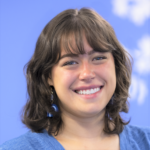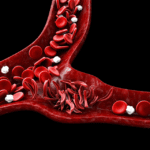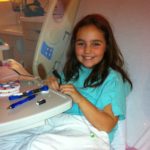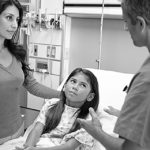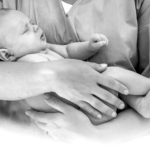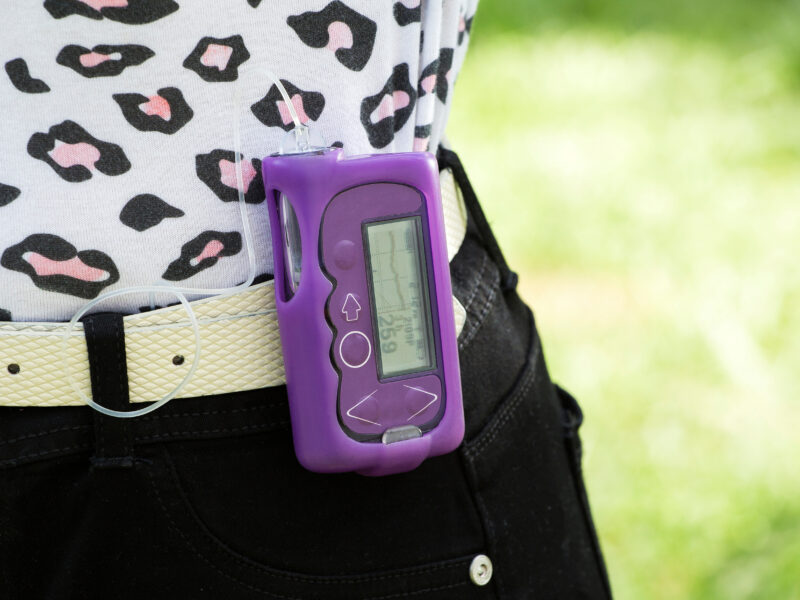Featured Researcher — Leena Nahata, MD
Featured Researcher — Leena Nahata, MD https://pediatricsnationwide.org/wp-content/themes/corpus/images/empty/thumbnail.jpg 150 150 Natalie Wilson Natalie Wilson https://pediatricsnationwide.org/wp-content/uploads/2021/06/Natalieheadshot3-2.png- August 04, 2021
- Natalie Wilson
Pediatric endocrinologist Leena Nahata, MD, is the founder and medical director of the Fertility and Reproductive Health Program at Nationwide Children’s Hospital and a principal investigator in the Center for Biobehavioral Health at the Abigail Wexner Research Institute at Nationwide Children’s.
Although fertility-related decisions can seem far away for children, adolescents and their families, many childhood medical conditions and treatments can have future effects on fertility and reproductive health. The Fertility and Reproductive Health Program provides education, counseling and fertility preservation options for patients who may be at risk for long-term fertility or reproductive health issues.
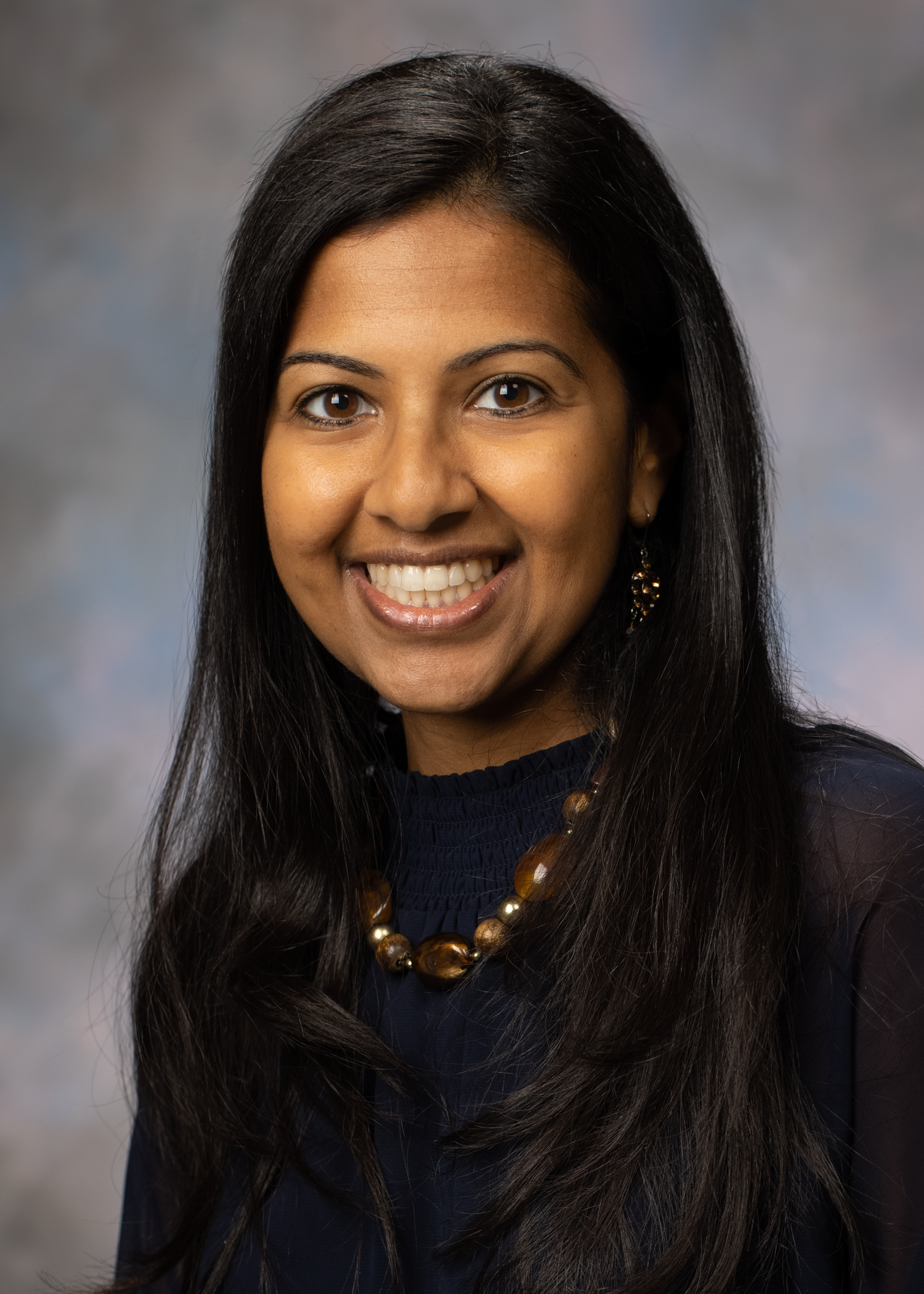
Clinical research by Dr. Nahata, who is also an associate professor of Clinical Pediatrics at The Ohio State University College of Medicine, aims to further improve fertility counseling practices to help achieve better reproductive and psychosocial outcomes for these patients. Her published findings contribute to reproductive health practices and fertility guidelines through multiple national and international organizations such as the American Academy of Pediatrics, Pediatric Initiative Network of the Oncofertility Consortium, Children’s Oncology Group, PanCareLIFE and the World Professional Association for Transgender Health.
Read on to learn more about Dr. Nahata and her research journey.
How did you decide to pursue a career in research?
Growing up, I loved working with children and spent my high school years volunteering at “Columbus Children’s Hospital” (when it was a smaller entity than it is today!), which solidified my decision to begin medical training to become a pediatrician.
I enjoyed many of my rotations while completing my pediatrics residency at Lurie Children’s Hospital, which made it difficult to choose a subspecialty, but I decided to pursue endocrinology. It was satisfying that most endocrine conditions could be diagnosed and treated successfully.
While I completed my pediatric endocrinology fellowship at Boston Children’s Hospital, I met the family of a cancer survivor who was very concerned about fertility impairment — a problem that affects approximately 50% of male childhood cancer survivors and 15% of female survivors. This was the first time I’d been exposed to this issue.
Most children and adolescents aren’t actively thinking about their future parenthood goals, especially when their world is turned upside down by a life-altering medical condition. Yet most of these youth will survive, and they can face fertility impairment, which can impact them greatly as adults.
I realized that even though some fertility preservation options were available for at-risk youth, we lacked a standardized approach to offering fertility counseling and supporting patients’ decision-making, and we know fertility impairment causes psychosocial distress in adulthood.
This topic became the focus of my first clinical research project, and I realized the impact I could make through a research career in the growing field of oncofertility.
What was your path to your current role?
After my fellowship, I joined the Section of Endocrinology at Nationwide Children’s and sought opportunities to continue fertility-related work. I worked with outstanding collaborators in Oncology, Gynecology, Urology and Psychology to develop a comprehensive Fertility and Reproductive Health Program which is now among the leading programs in the country.
With support from John Barnard, MD, and Cynthia Gerhardt, PhD, I began working in the Center for Biobehavioral Health in 2016. And in 2019, I was fortunate to receive a K08 grant from the National Cancer Institute to develop and test a novel family-centered fertility preservation decision tool for adolescent boys with cancer.
What is your favorite part of your job?
Clinical researchers must effectively sell their ideas to potential participants, funding agencies and scientific journals. Most scientists aren’t experts in marketing/sales, so we have to be truly passionate and believe in what we are doing in order to be successful.
I love my job and the positive impact it can have on patients and families. I am passionate about both science and writing, and I get excited about examining our study findings and writing manuscripts to help move the field forward!
I’ve also had opportunities to contribute to this field through leadership roles on various national and international committees and task forces.
Fun Facts About Dr. Nahata
What would be your dream job if you weren’t working in research?
I would probably be a travel agent! I love to learn about new destinations and build detailed trip itineraries, and it would be fun to help people plan and enjoy their dream vacations.
What’s your favorite food?
I’m a vegetarian, and I like spicy food with bold flavors. Bon Me in Boston, MA has a delicious tofu banh mi sandwich, which I enjoy during every trip back!
Favorite kind of music?
I like a wide variety of music — especially music you can dance to. I started dancing when I was 5 years old. Currently my favorite playlists are Bollywood Dance Hits and Ed Sheeran Essentials. My 7-year-old has been learning to play several of Ed Sheeran’s songs on the ukulele!
Favorite way to relax?
My husband and I love to travel internationally, particularly to more remote destinations. Unplugging from the day-to-day grind and experiencing something totally different helps me relax and refresh. Some of my favorite memories include driving around Ring Road in Iceland (where we saw way more sheep than people!); “walking the walls” of Dubrovnik; hiking in the Isle of Skye, Patagonia and Bavaria; enjoying international cuisine in Cape Town; and taking our son on a castle tour in Ireland.
Favorite thing you’ve bought this year?
After 1.5 years of planning and building, we moved into a new home in October 2020! It’s been a lot of fun to fill the new space.
In the past five years, I’ve learned a tremendous amount about writing grants, designing and implementing various clinical research studies including randomized controlled trials, and running a lab. I continue to learn more every day!
What do you hope to accomplish next?
I hope to optimize fertility counseling practices across at-risk pediatric populations and develop and distribute family-centered fertility preservation decision tools for these youth. Currently, our research is primarily targeting adolescent boys with cancer. I hope to take what we learn and apply it to other pediatric cancer populations as well as those with a variety of other conditions like sickle cell disease, lupus and Turner syndrome.
I feel fortunate that I was able to take an area that I became passionate about during my training and make it the foundation of my academic career. I hope to invest more time and energy in leadership development and take on roles where I can work with students, residents, fellows and faculty who are starting their own academic careers to help them do the same.
About the author
Natalie is a passionate and enthusiastic writer working to highlight the groundbreaking research of the incredible faculty and staff across Nationwide Children's Hospital and the Abigail Wexner Research Institute. Her work at Nationwide Children's marries her past interests and experiences with her passion for helping children thrive and a long-held scientific curiosity that dates back to competing in the Jefferson Lab Science Bowl in middle school. Natalie holds a bachelor’s degree in sociology from Wake Forest University, as well as minors in women's, gender & sexuality studies and interdisciplinary writing. As an undergraduate student, Natalie studied writing and journalism, engaged with anthropological and sociological research with a focus on race and ethnic relations, served as executive editor for the student newspaper, the Old Gold & Black, and gained marketing experience as an intern for a nonprofit entrepreneurial incubator, Winston Starts, as well as by working for Wake Forest University School of Law Office of Communication and Public Relations and its Innocence and Justice Clinic.
-
Natalie Wilsonhttps://pediatricsnationwide.org/author/natalie-wilson/
-
Natalie Wilsonhttps://pediatricsnationwide.org/author/natalie-wilson/
-
Natalie Wilsonhttps://pediatricsnationwide.org/author/natalie-wilson/
-
Natalie Wilsonhttps://pediatricsnationwide.org/author/natalie-wilson/
- Posted In:
- Featured Researchers



